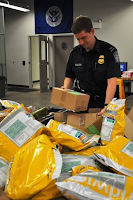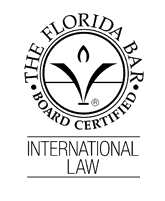Mark Twain once said, “I never smoke to excess - that is, I smoke in moderation, only one cigar at a time.”
With the loosening of restrictions on travel and trade with Cuba, including the authorization to import Cuban Cigars (for personal use only, under a certain value), persons under “U.S. jurisdiction” are getting caught right and left trying to take advantage and import more than their share of Cuban cigars to the US. In May of this year, Maxim magazine declared Cuban Cigars are still the worlds best. However, as relations thaw, will the Cuban cigar be able to take back the market share it lost in the past half century when countries like Dominican Republic and Nicaragua have served the US? That is a question recently posed by Will Yakwowicz in an article for Inc. earlier this year.
Although you are allowed to bring Cuban cigars back to the U.S. (if you are on an “authorized trip” to Cuba) there is a limit and the United States Customs and Border Protection (CBP) can, and will, seize any amount over the allowed limit.
What is the scope and limit on how many cigars I can bring in?
- Persons authorized to travel to Cuba (see our previous post regarding authorized travel to Cuba) may purchase alcohol and tobacco products while in Cuba for personal consumption. Also, as an authorized traveler you may return to the United States with up to $400 worth of Cuban goods, but only $100 worth of alcohol or tobacco or a combination of both.
Will Customs and Border Protection seize as little as 1 cigar?
- YES! CBP can and will seize even one cigar. Since 2013, CBP posts seizure notices online, so the world can see what CBP seized. Here’s the proof that CBP has been seizing Cuban cigars. An example of U.S. CBP seizing JUST one cigar was as recent as 06/20/2016 at the port of JAMAICA, NY.

- During August of 2016, CBP has seized cigars from Ports of entry such as San Diego, California; Anacortes, Wa.; Jamaica, NY; Phoenix, Ar.; Washington, DC with the most being seized at the Port of Jamaica, NY, with a total of over 300 Cigars seized from different individuals.
U.S.’s normalization of ties with Cuba is progressing, and our office is well positioned to help you take advantage of these changes and ensure you stay compliant. Be sure you know the rules and don’t enter the U.S. with more than your $400 worth of Cuban goods, $100 of which of alcohol and tobacco. If you are faced with a seizure notice, or want to ensure you stay compliant, contact us at info@diaztradelaw.com with any questions.






